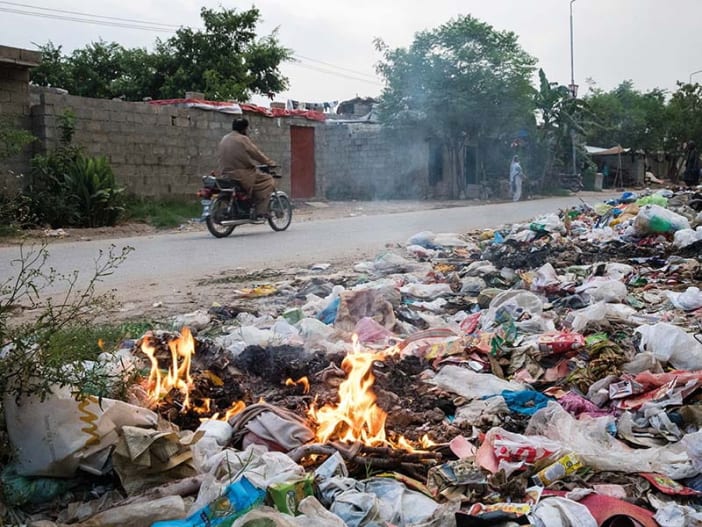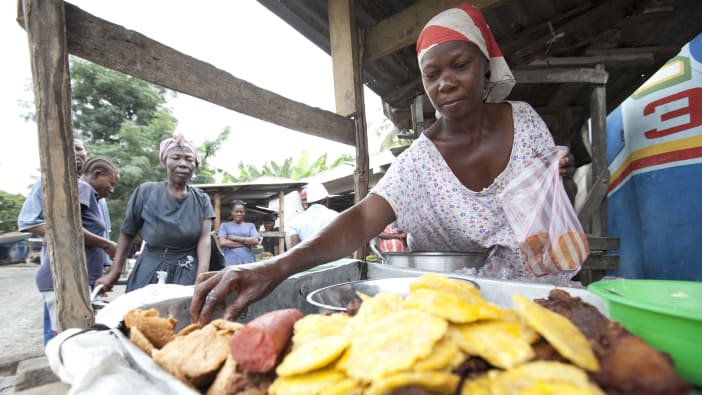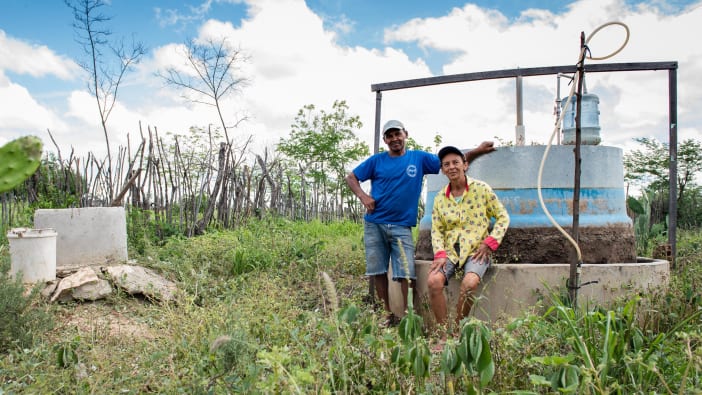In 2016, young Haitians James Desrosiers and Obed Arris started their own company making stylish bags from discarded water sachets. They share their story below...
Interviews
Interview: From trash to treasure
Two young entrepreneurs in Haiti are turning plastic waste into stylish bags
2019 Available in English, French, Portuguese and Spanish
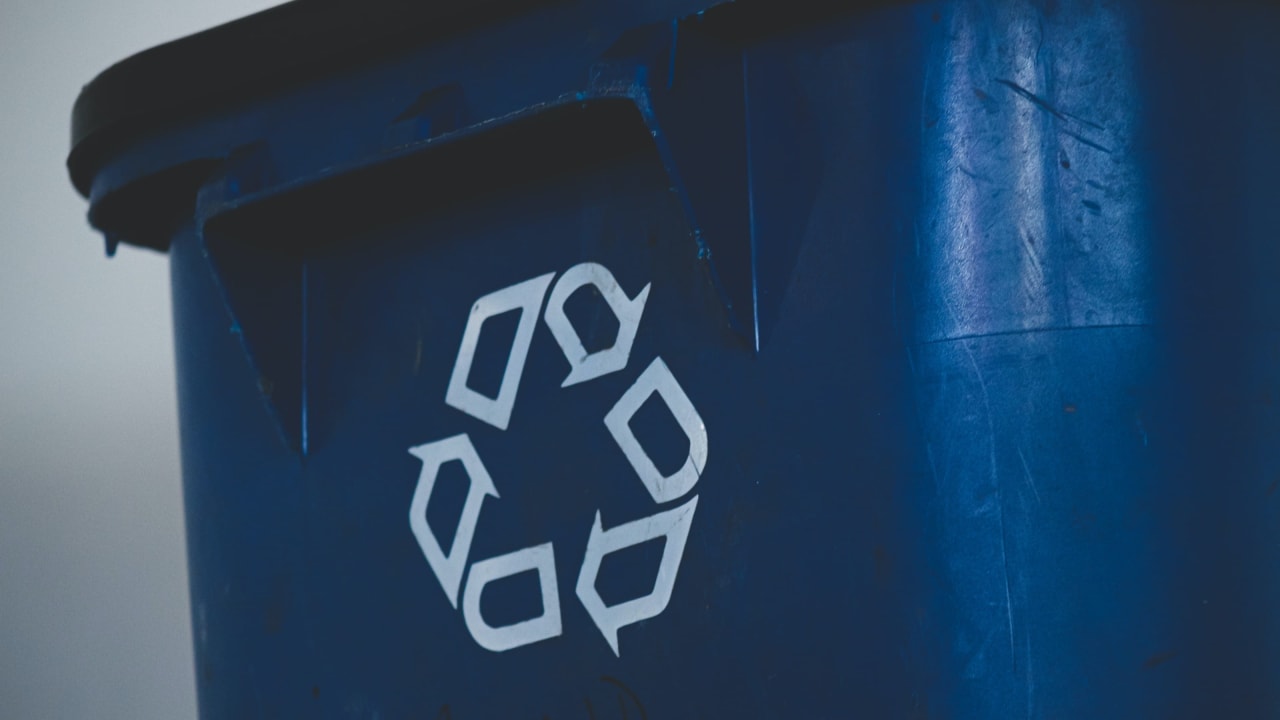

From: Waste – Footsteps 107
Practical advice and inspiring stories about dealing with waste in our communities
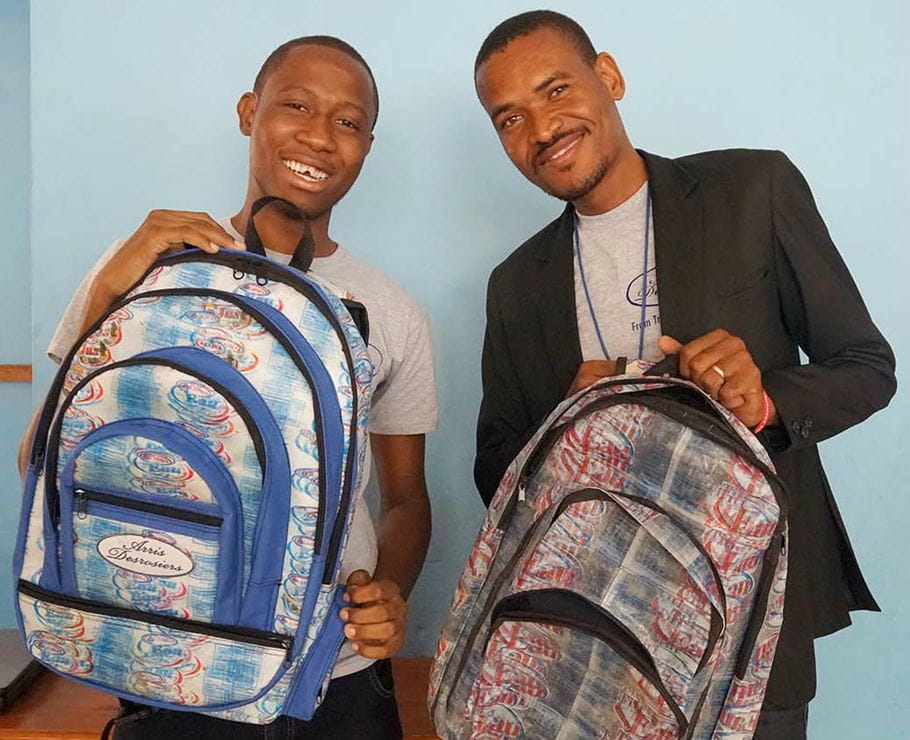
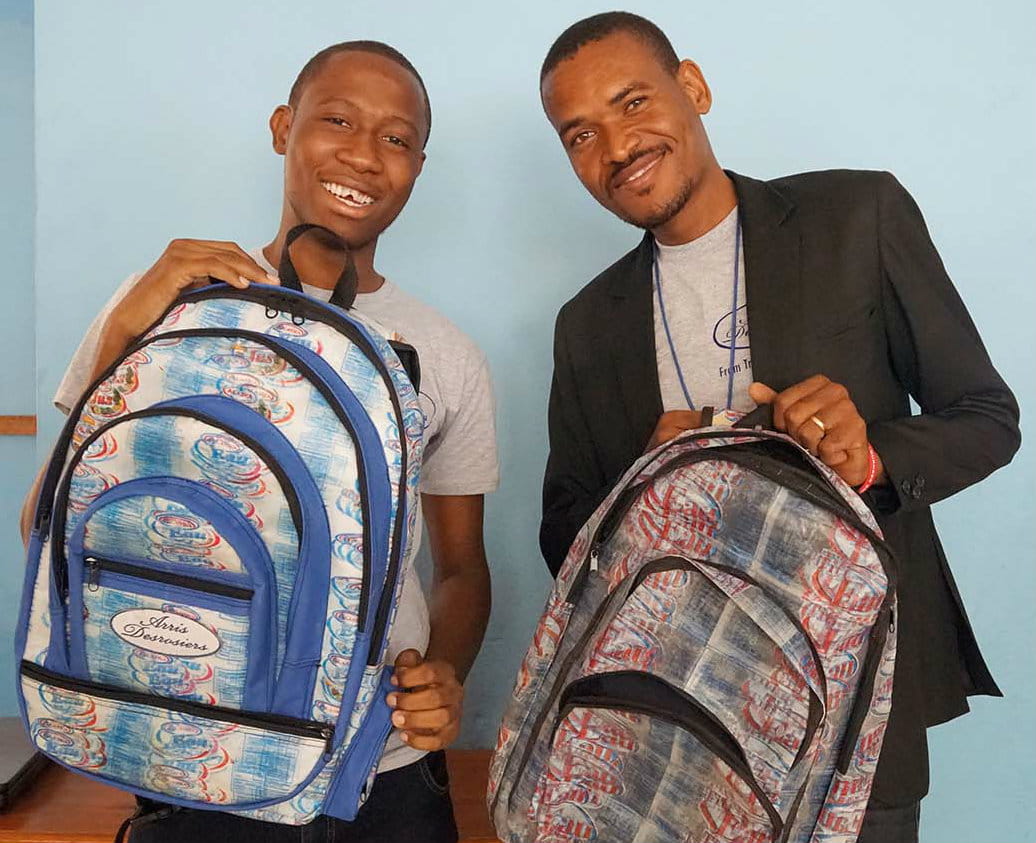
James Desrosiers and Obed Arris started a business making products from discarded plastic water sachets. Photo: Jack Wakefield/Tearfund
What inspired you to start your company?
The waste management situation in Haiti is disastrous, with people using the streets, rivers and sea as their rubbish dump. After James attended a seminar on environmental protection, he began experimenting with making things out of plastic waste. He showed the results to Obed, and we decided to create a company working in recycling: Arris Desrosiers. We make products such as backpacks, laptop bags and lunchboxes using discarded plastic water sachets.
How did you develop your products?
We had to try out several models before finding the best one. Then, we worked on perfecting it.
Like most companies, to get started we needed funds – which we did not have! We looked for funding from government and private organisations, but with no success. So we began with less than 200 USD. But after that, we received support from several people, who constantly encouraged us. Now, we are making a good profit. At present our main clients are NGOs such as Food for the Poor and Oxfam. Local people also buy our products.
We sell around 2,000 items a month and are working to increase this number. There is now an international demand for our products, especially in the USA. Currently we have about 50 employees, mainly young people. We want to provide work for as many people as possible.
How do you collect the plastic sachets?
At first, we collected the sachets in the streets. Some people called us crazy because they did not know what we were doing. Now, we have agreements with some of the companies selling water sachets, and they send us their waste almost free of charge. Also, because of our awareness-raising campaigns, the public are beginning to send us their water sachets rather than throwing them in the street. In the future we plan to set up collection centres around the country, paying people for their plastic waste.
What challenges did you have and how did you overcome them?
We encountered many challenges. Firstly, some people did not like the thought of wearing a product made from waste. Secondly, we had financing problems. Thirdly, we had little knowledge of what we were doing, in either the technical or administrative side of our work.
Over time, we began awareness-raising campaigns through social media. We had to fundraise among family and friends to meet the company’s financial needs. With time, we have learnt how to do things better. And most importantly, we developed a desire to fill in the gaps in our knowledge, attending lots of seminars and reading many books. And we still have a lot to learn.
What advice would you give to anyone wanting to develop a business using waste?
We would tell them not to make backpacks, because we are already doing this! More seriously, we would tell them to organise their activities well, to plan their actions carefully to ensure they do not cause more harm than good to the environment, and to be assured that it is all worth it.
What is your dream for the future?
We are currently starting a new waste collection service to help solve the wider waste problems in Haiti. We dream of a cleaner environment and a country where everyone has the opportunity to work for companies like ours – companies that aim to provide solutions to the major problems facing the world.
Web: www.facebook.com/arrisdesrosiers17
Email: [email protected]
Please note: Making a profit selling handicrafts made from waste can be challenging. It is important to make sure there will be enough demand for your product. See Footsteps 103: Entrepreneurship for advice.
View or download this resource
Get this resource
Get this resource
Similarly Tagged Content
Share this resource
If you found this resource useful, please share it with others so they can benefit too.

Subscribe to Footsteps magazine
A free digital and print magazine for community development workers. Covering a diverse range of topics, it is published three times a year.
Sign up now - Subscribe to Footsteps magazine

